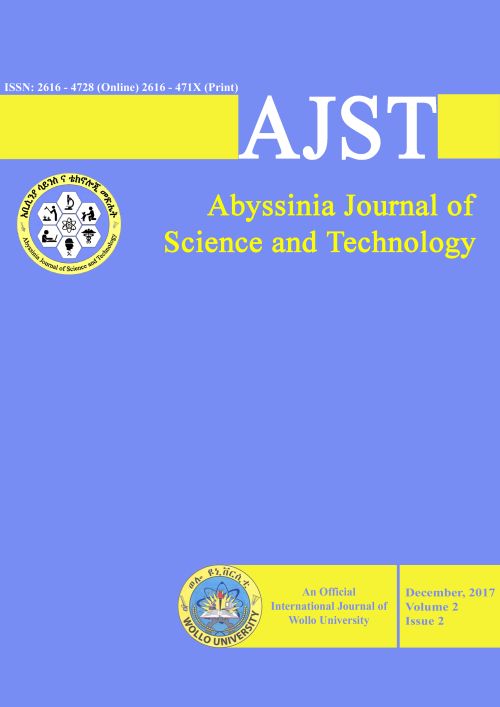Main Article Content
Developing Kabuli Chickpea (Cicier arietinum L.) genotypes for drought prone environment and utilization and nutritional assessment in the Eastern Amahara
Abstract
Eight promising chickpea genotypes advanced from preliminary yield trial to multi environments trial were evaluated for their yield performance to the moisture stress areas and their utilization from 2009/10 and 2012/13 cropping season. The experiment was conducted at three locations viz, Sirinka, Chefa and Kobo using randomized complete block design with three replications. The additive multiplicative interaction model was used to analyze the data. The combined analysis of variance over years and locations revealed that there were highly significant differences among chickpea genotypes in yield and yield component traits. Based on the analysis of genotype ICC-14808 were better performing in all agronomic and yield parameter. The candidate genotypes were evaluated, validated and verified for release by the National Variety Releasing Committee. The yield potential of the genotype was 3.7 tons ha-1 at research station. ICC-14808 genotypes have a 45% of yield advantage over the standard check (Shasho). The candidate genotype has 35gm of 100 seed weight that fulfilled the required standard for export, and it was a drought tolerant that grows in area where all other cool season pulse crops couldn’t grow very well. Based on the evaluation and assessment, genotype ICC-14808 was released for farmers in the Eastern Amhara. The breeder designates the variety to be called now and then Yelbe. The utilization and quality assessments of the farmers were explained in the papers.







